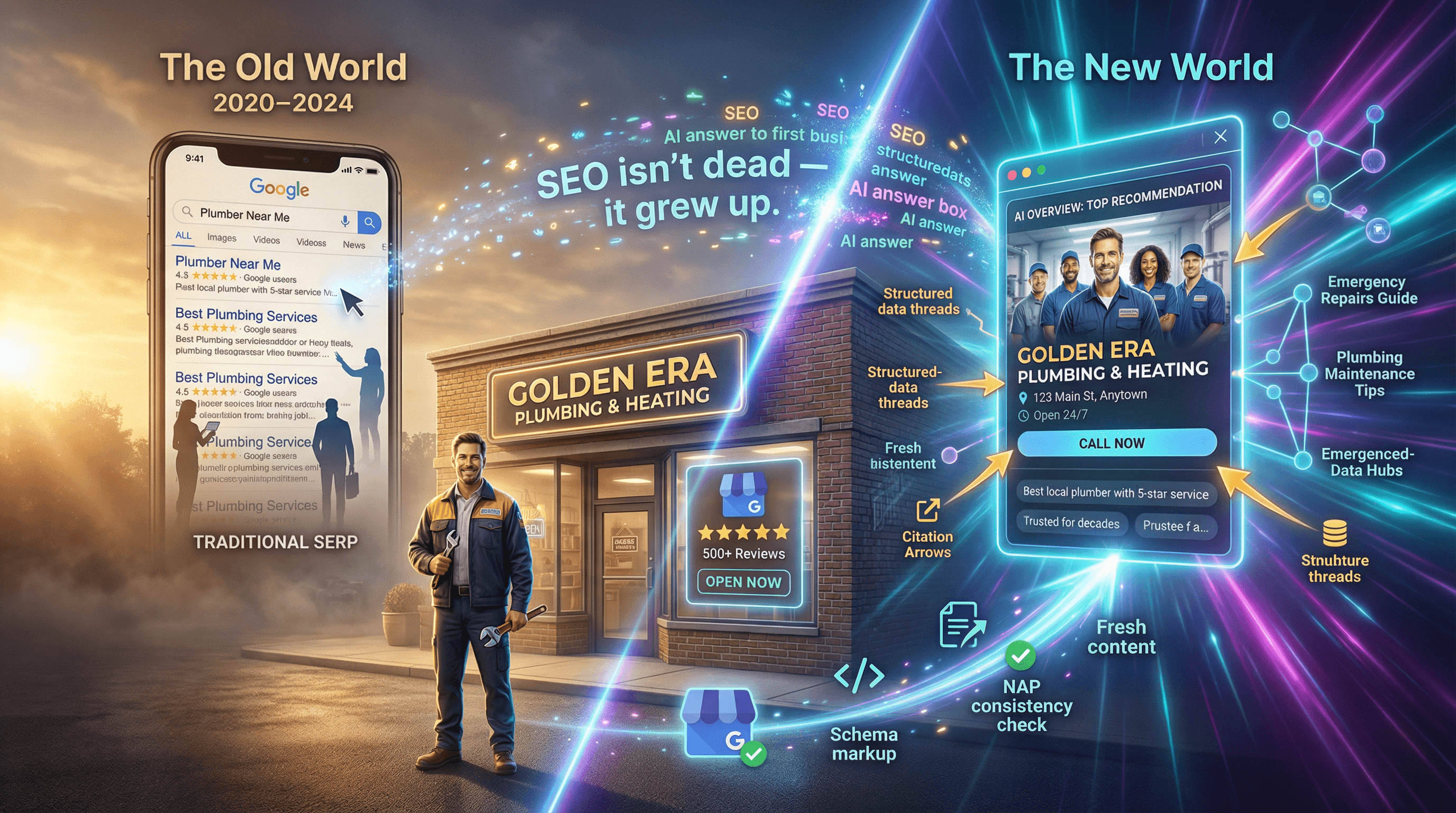Growth Partners
Stay sharp in a numbing world. Cultivate curiosity, nourish your body, and engage in active creation for mental acuity and growth. Growth Partners.
It feels like the world is always trying to dull our senses, doesn't it? Between endless scrolling and constant demands, it's easy to feel like your brain is just... going through the motions. But staying sharp and engaged isn't some secret trick. It's about making small, consistent choices that keep your mind active and your spirit alive. Think of it like tending a garden; you have to water it, give it sun, and pull the weeds. We'll look at some simple ways to do just that, finding Growth Partners along the way to help us along.
Key Takeaways
Keep learning new things, even small stuff. A beginner's mind helps you stay curious and engaged.
Move your body regularly. Even short bursts of activity help your brain work better and reduce stress.
Make things instead of just looking at them. Using your hands for projects helps your brain in different ways.
Ask better questions and really listen. Deeper conversations make your mind sharper and connect you more.
Don't shy away from challenges. Facing discomfort helps you build resilience and confidence.
Cultivate a Curious and Learning Mindset
It’s easy to get stuck in a rut, right? We do the same things, think the same thoughts, and before we know it, our brains feel a bit… fuzzy. But there’s a way to keep that spark alive, and it starts with how we approach learning and new experiences. Think of it like keeping a muscle strong – you have to work it out.
Embrace a Beginner's Mindset
Remember when you were a kid and everything was new and exciting? That feeling is still accessible. It’s about approaching things, even familiar ones, with fresh eyes. Instead of thinking you already know it all, try asking “What if?” or “How does this work?” This openness is key to staying mentally agile. It’s not about being naive; it’s about being willing to see things as if for the first time. This mindset helps you notice details you might have missed before and can lead to unexpected insights. It’s a powerful way to keep your brain engaged and prevent it from settling into predictable patterns. Teachers can promote lifelong learning by nurturing curiosity in students. This involves encouraging them to explore real-world issues, ask questions, and solve problems. By acting as curious role models themselves, educators can inspire a continuous desire for knowledge and discovery in their students, fostering an environment where learning extends beyond the classroom and throughout life. nurturing curiosity in students
Engage in Micro-Learning Daily
We don't need to sign up for a full degree program to learn something new. Small, consistent efforts add up. Think about learning a few new words in a different language while you’re waiting for your coffee, or watching a short video about a historical event during your lunch break. These little bits of new information are like tiny workouts for your brain. They help build new connections and keep your memory sharp. The trick is to make it a habit, even if it’s just for five or ten minutes each day. It’s about consistent exposure to new ideas and skills, rather than trying to cram a lot at once. This approach makes learning feel less like a chore and more like a natural part of your day.
Here’s a simple way to integrate micro-learning:
Pair it with existing routines: Listen to a podcast episode while commuting or read an article while eating breakfast.
Set small, achievable goals: Aim to learn one new fact or skill per day.
Use downtime wisely: Instead of scrolling mindlessly, use a few minutes to explore a topic that interests you.
Seek Out New Experiences and Skills
Stepping outside your comfort zone is where real growth happens. This doesn't mean you have to go skydiving (unless you want to!). It could be trying a new recipe, taking a different route to work, or learning a simple craft. These new activities challenge your brain in different ways, forcing it to adapt and figure things out. It’s about actively seeking out novelty. When you try something new, you’re not just acquiring a new skill; you’re also building confidence and proving to yourself that you can handle the unknown. This willingness to explore keeps life interesting and your mind sharp. It’s about embracing the process of discovery and realizing that there’s always something more to explore and understand.
The world is full of things to learn and do. Don't let the comfort of routine keep you from discovering them. Every new experience, no matter how small, adds a layer to your understanding and keeps your mind active. It’s about being an explorer in your own life.
Skill Area | Example Activity |
|---|---|
Creative | Sketching a simple object, writing a short poem |
Practical | Learning a basic knot, fixing a leaky faucet |
Intellectual | Researching a historical event, learning a new term |
Physical | Trying a new yoga pose, learning a dance step |
Nourish Your Body for Mental Acuity
It sounds obvious, right? Take care of your body, and your brain will thank you. But in our busy lives, it’s easy to let the basics slide. We grab whatever’s quick, skip the walk because we’re “too tired,” and then wonder why our focus is shot. The truth is, your physical state is directly linked to your mental sharpness. Think of your body as the engine for your mind; if it’s sputtering, your thoughts won’t run smoothly.
Incorporate Regular Movement
Your brain needs oxygen, and movement is the best way to get it there. It’s not about training for a marathon, though. Even short bursts of activity make a difference. A brisk walk around the block, taking the stairs instead of the elevator, or even just stretching for a few minutes can help reduce stress chemicals and get your blood flowing. This improved circulation means more oxygen and nutrients reach your brain, helping you think more clearly and feel more alert. It’s a simple feedback loop: move more, think better.
Aim for at least 30 minutes of moderate activity most days of the week.
Break up long periods of sitting with short movement breaks.
Find activities you genuinely enjoy to make it a sustainable habit.
Prioritize Restorative Sleep
Sleep is when your brain does its heavy lifting – consolidating memories, clearing out waste products, and repairing itself. Skimping on sleep is like trying to run a computer with a low battery; it just won’t perform optimally. Establishing a consistent sleep schedule, even on weekends, is key. Creating a relaxing bedtime routine can signal to your body that it’s time to wind down. This might include dimming the lights an hour before bed, avoiding screens, or reading a physical book. A well-rested mind is a sharp mind.
The quality of your sleep directly impacts your cognitive functions like memory, attention, and problem-solving. Don't underestimate its power.
Mindful Eating for Brain Health
What you eat fuels your brain. Processed foods and sugary snacks might give you a quick energy spike, but they often lead to a crash, leaving you feeling foggy. Instead, focus on whole foods that provide sustained energy and the nutrients your brain needs. Think about incorporating foods rich in vitamins and healthy fats. For instance, nuts and seeds are packed with vitamin E, which is great for brain health. Making conscious food choices isn't just about physical health; it's a direct investment in your mental clarity and ability to stay sharp. Try adding nuts to your diet.
Here’s a quick look at some brain-friendly food groups:
Fatty Fish: Salmon, mackerel, and sardines are loaded with omega-3 fatty acids.
Berries: Blueberries, strawberries, and raspberries are full of antioxidants.
Leafy Greens: Spinach, kale, and broccoli provide vitamins and minerals.
Nuts and Seeds: Walnuts, almonds, and sunflower seeds offer vitamin E and healthy fats.
Engage in Active Creation Over Passive Consumption
It’s easy to get stuck just watching, reading, or listening. We scroll through endless feeds, binge-watch shows, and absorb information without really doing anything with it. This passive consumption can feel relaxing, but it often leaves us feeling drained and less sharp. Our brains are wired for more than just taking things in; they thrive when they're actively building, making, and solving.
Use Your Hands for Tangible Projects
Think about it: when was the last time you actually made something with your hands? It doesn't have to be a masterpiece. Maybe it's fixing a wobbly chair, trying a new recipe, or even just doodling in a notebook. These hands-on activities are surprisingly good for your brain. They require planning, coordination, and problem-solving, engaging parts of your mind that just scrolling doesn't touch. It’s a different kind of engagement, one that feels more grounded and rewarding. Trying to build something, even if it's simple, can be a great way to break the cycle of just consuming content.
The Power of Making Things
Creating something, anything, shifts your focus from what's happening out there to what's happening right here. When you're focused on knitting a scarf, assembling a piece of furniture, or even just organizing your workspace, your attention sharpens. You're not just a spectator; you're an active participant. This active involvement helps build confidence and a sense of accomplishment that passive activities rarely provide. It’s about the process, the small wins, and the tangible result.
Shift from Scrolling to Creating
So, how do you make this shift? Start small. Instead of spending an hour scrolling social media, try dedicating 15 minutes to a creative pursuit. Maybe it's writing a short story, learning a few chords on a guitar, or sketching a plant on your desk. The key is to choose activities that involve active participation and a degree of challenge. It’s about trading the fleeting satisfaction of endless content for the lasting reward of building something yourself.
The world doesn't need more people passively absorbing information. It needs more people actively contributing, building, and creating. When you make things, you engage your mind in a way that passive consumption simply can't match. It's a direct path to a sharper, more engaged self.
Deepen Social Connections Through Inquiry
It’s easy to fall into the trap of surface-level chats, you know? The quick "how are yous" and the weather updates. But to really keep your mind buzzing and your connections strong, you've got to dig a little deeper. It’s about being genuinely curious about the people around you, not just going through the motions. Asking questions that invite more than a one-word answer is key.
Think about it. When someone asks you "What surprised you this week?" or "What's something new you're learning?", it opens the door for a real conversation. It makes you pause, recall something interesting, and share a bit more of yourself. And when you do that for others, you're not just being polite; you're actively engaging your brain. You're pulling up memories, figuring out how to explain things, and paying attention to their reactions. It’s like a workout for your mind, all disguised as friendly chat.
Ask More Engaging Questions
Instead of the usual pleasantries, try these:
What's been the highlight of your week so far?
Did anything unexpected happen recently that made you think?
What's a skill you're trying to pick up or improve?
What's something you're looking forward to?
Practice Active Listening and Silence
This is where the magic really happens. It's not just about waiting for your turn to speak. It's about truly hearing what the other person is saying, both with their words and their body language. Make eye contact. Nod. And don't be afraid of a little silence. Sometimes, letting the other person fill the quiet space can lead to them sharing something even more profound. It shows you're present and genuinely interested.
True connection isn't just about talking; it's about creating a space where both people feel heard and understood. This requires patience and a willingness to be quiet.
Connect Across Generations and Fields
Don't limit your social circle to people who are just like you or in the same stage of life. Chatting with younger folks can bring fresh perspectives, while older generations have a wealth of experience to share. Likewise, talking to people from different professions or backgrounds can spark new ideas and challenge your own thinking. It’s this mix of viewpoints that really keeps your mind sharp and your world interesting.
Embrace Intentional Discomfort for Resilience

We live in a world that’s pretty good at making things easy. Same-day delivery, endless entertainment at our fingertips, food that’s practically pre-chewed. It’s nice, sure, but it’s also making us a bit… soft. Our brains and bodies are wired for challenge, for overcoming obstacles. When we only experience ease, we lose that muscle. We become less able to handle it when life inevitably throws us a curveball. That’s where intentional discomfort comes in. It’s about choosing to do things that are a little hard, not for the sake of suffering, but to build up our ability to cope and grow.
Understand Why Ease Numbs Us
Think about it. When was the last time you really had to push yourself? Not because you had to, but because you chose to? It’s easy to get stuck in a loop of comfort. We scroll through social media to avoid a difficult task, or we order takeout instead of cooking a meal that takes a bit more effort. This constant seeking of ease trains our brains to expect instant gratification and to shy away from anything that feels remotely challenging. Over time, this numbs us. It makes us less patient, less resilient, and frankly, a bit more fragile when things don’t go our way. We start to see minor inconveniences as major crises.
Lean into Challenges for Growth
So, how do we fight this numbing effect? By deliberately stepping outside our comfort zones. This doesn't mean you need to go bungee jumping tomorrow (unless you want to!). It can be as simple as taking a cold shower for 30 seconds, saying
Find Purpose and Emotional Clarity
It's easy to get caught up in the daily grind, just going through the motions. But what if there's more? Finding a sense of purpose and understanding your own feelings can make a huge difference in staying sharp. It's not about having some grand, world-changing mission, but about having a clear direction that guides your choices.
Define a Clear, Portable Mission
Think of this as your personal compass. It's a simple statement, maybe just one sentence, that reminds you what's important. It could be something like "Help my neighbors grow food" or "Record family stories." This kind of mission statement helps trim away the mental clutter. It tells your brain what to pay attention to and which projects are worth your energy. It's something you can carry with you, no matter where you are or what you're doing. And remember, your "why" can change over time, and that's perfectly okay. You don't need anyone's permission to write a new one that fits your current life.
Process Emotions Without Judgment
Our emotions are a big part of how we understand the world. Instead of fighting them or trying to push them away, try just noticing them. Are you feeling sad, angry, or even just quiet? Instead of labeling these feelings as "good" or "bad," just acknowledge them. Think of it like observing the weather – it changes, and you can move through it. When you stop battling your internal feelings, you free up mental energy for other things, like learning or connecting with people. It's about accepting the full range of human experience.
Connect with Your Core Values
What really matters to you deep down? Identifying your core values – like honesty, kindness, creativity, or adventure – gives you a solid foundation. When your actions align with your values, you feel more authentic and purposeful. This connection helps you make decisions that feel right, even when things get tough. It's about living a life that's true to who you are, not just what others expect.
Identify your top 3-5 core values. What principles guide your best decisions?
Reflect on how your daily actions align with these values. Are there areas where you can do better?
Use your values as a filter for new opportunities. Does this new project or commitment fit with what you stand for?
Living with purpose and emotional clarity isn't about achieving perfection. It's about building a rhythm, having a little courage, and being willing to be a beginner again and again. It's about making sense of the world and your place in it.
Strengthen Attention Through Practice

Train Your Attention Kindly
Think of your attention like a puppy. It wanders off, gets distracted by squirrels, and sometimes just wants to chew on your favorite shoes. You don't yell at a puppy for being a puppy; you gently guide it back. That's what training your attention is like. It's not about forcing yourself to focus or getting mad when your mind drifts. It's about noticing where your attention went and kindly bringing it back. This is the core of practices like meditation, breathwork, or even just sitting quietly for a few minutes.
Start small: Even five minutes a day makes a difference.
Notice the wandering: When your mind drifts, just acknowledge it without judgment. Label it 'thinking' or 'planning'.
Gently redirect: Bring your focus back to your breath, a sensation, or whatever anchor you've chosen.
This repeated act of noticing and returning is the 'rep' that builds your attention muscle.
Mindfulness as a Mental Workout
Mindfulness isn't some mystical state you achieve; it's a practical exercise for your brain. Just like lifting weights strengthens your body, practicing mindfulness strengthens your ability to focus and manage distractions. It's about being present with whatever is happening, without getting carried away by it. This can be done formally, like sitting for meditation, or informally, by paying attention to everyday activities.
When we stop fighting the internal weather, we free up processing power for everything else—learning, connecting, noticing beauty on a Tuesday.
Focus on What You Can Control
So much of our mental energy gets drained by worrying about things outside our influence. The weather, other people's opinions, the past – these are all things we can't really change. Training your attention means learning to recognize what's within your control and directing your focus there. This could be your own actions, your reactions, or how you choose to spend your time. By consciously choosing where to place your attention, you reclaim mental space and reduce unnecessary stress.
So, What's the Takeaway?
Look, staying sharp in this world isn't about some magic pill or complicated program. It's really about the small, everyday choices we make. Think about it: moving your body, even just a little, making something with your hands instead of just scrolling, asking real questions, and getting decent sleep. These aren't huge overhauls. They're just simple habits, repeated. It’s about being a bit curious, a bit brave, and okay with not being perfect. If you can manage even a few of these things, you're already doing a lot to keep your mind clear and engaged. It’s less about a grand plan and more about showing up for yourself, day after day, in small but meaningful ways.
Frequently Asked Questions
Why does the world make us feel numb?
Life today is often super easy. We get things fast, have lots of entertainment, and can avoid anything tough. This constant comfort can make us feel less alive and aware, like we're just going through the motions without really experiencing things. It's like eating only sugary snacks – it feels good for a moment, but it doesn't really feed you.
How can I learn new things even when I'm busy?
You don't need hours to learn! Try 'micro-learning.' Spend just 5-10 minutes each day learning something small. This could be looking up a new word, watching a short video about a topic you like, or practicing a few chords on an instrument. Doing this regularly helps your brain stay active and curious, like exercising a muscle.
What's the difference between consuming and creating?
Consuming is like watching TV or scrolling through social media – you're taking in information. Creating is when you make something yourself. This could be drawing, cooking, building something, or even writing a story. Using your hands and mind to make things wakes up your brain in a way that just watching or reading doesn't.
How can talking to people help me stay sharp?
When you talk to people, try asking questions that go deeper than 'How are you?' Ask things like 'What's something interesting you learned recently?' or 'What surprised you this week?' Then, really listen to their answers. This kind of talking makes your brain work harder to remember, understand, and connect, which keeps it sharp.
Why is it good to do things that are a little uncomfortable?
When things are too easy, our minds get lazy. Doing something a bit hard on purpose, like taking a cold shower, trying a new challenging activity, or having a slightly awkward conversation, actually makes us stronger. It teaches our brains how to handle stress and reminds us that we can do difficult things, building our confidence.
How does sleep help my brain stay sharp?
Your brain does important work while you sleep, like sorting information and fixing itself. Not getting enough good sleep makes it hard to focus, remember things, and think clearly. Protecting your sleep by having a regular bedtime and a calm routine before bed is like giving your brain a power-up.
























































































